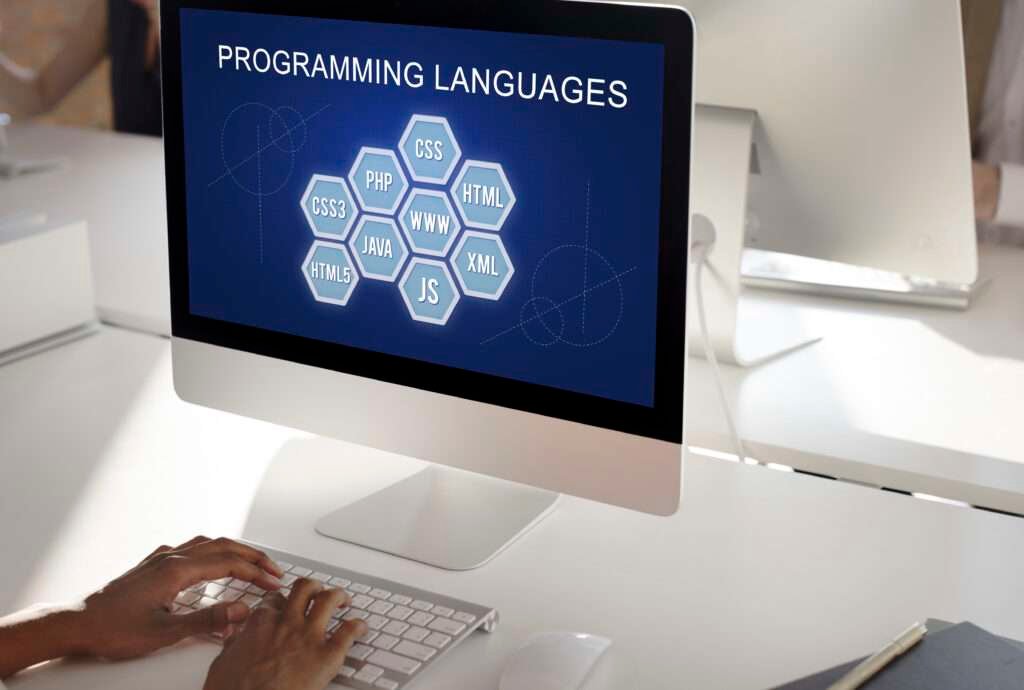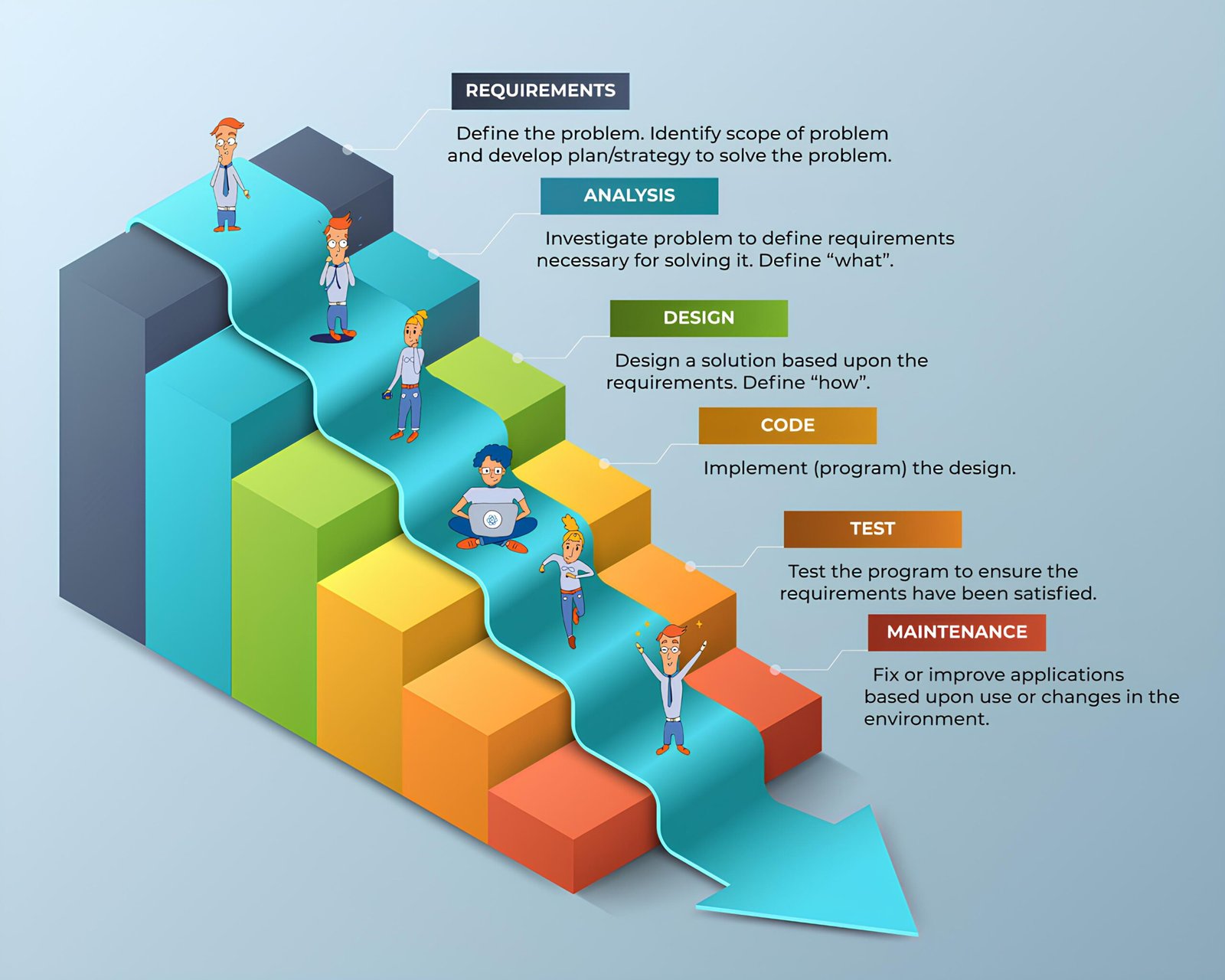Introduction to programming languages for web development
In today’s fast-paced digital landscape, establishing a robust online presence is paramount for businesses and individuals alike. Whether you’re a budding entrepreneur looking to launch your startup’s website or a seasoned enterprise aiming to enhance user experience through a sophisticated web application, understanding the fundamentals of programming languages is essential. Behind the captivating interfaces and seamless functionalities of modern websites and web applications lie the cornerstone of their creation – programming languages.
We delve into the intricate world of web development programming languages, shedding light on the top 10 programming languages that power the internet’s backbone. From dynamic content management systems to interactive e-commerce platforms, the choice of programming language significantly influences the efficiency, versatility, and scalability of your web endeavors. By unraveling the strengths and characteristics of each programming languages, we equip you with the knowledge needed to navigate the diverse landscape of web development and make informed decisions tailored to your project’s requirements.
Embark on this enlightening journey as we explore the rich tapestry of programming languages, empowering you to unlock the full potential of your digital ventures. Whether you’re a novice eager to embark on your coding odyssey or a seasoned developer seeking to expand your repertoire, this guide serves as your compass in the ever-evolving realm of web development. Join us as we unravel the intricacies of programming languages, paving the way for innovation, creativity, and success in the digital sphere.
Importance of choosing the right programming language
Selecting the appropriate programming language is of utmost importance for web development. It has the potential to either elevate or undermine the success of your project. Each programming language has its strengths and weaknesses, and understanding these attributes will help you determine which programming language is best suited for your specific needs. The wrong choice can lead to inefficient code, security vulnerabilities, and limited scalability.
Choosing the right programming language will impact your team’s productivity and the overall development process. It is essential to consider factors such as the availability of skilled developers, community support, and the ecosystem surrounding the language. By carefully evaluating these aspects, you can ensure a smooth development experience and long-term success for your web project.
Criteria for evaluating programming languages for web development
When evaluating programming languages for web development, there are several key criteria to consider. These criteria will help you assess the suitability of a language for your specific project requirements. Some important factors to consider include:
1. Language Syntax and Readability: The syntax of a programming language determines its readability and ease of understanding. A programming language with clear and concise syntax can greatly enhance developer productivity.
2. Performance and Efficiency: The performance and efficiency of a programming language can significantly impact the speed and responsiveness of your web application. It is crucial to choose a language that can handle the expected workload efficiently.
3. Scalability: As your web application grows, it is vital to have a programming language that can scale with your needs. Consider the language’s ability to handle increased traffic, data processing, and concurrent users.
4. Community and Support: A strong community and ample support resources are invaluable when working with a programming language. They provide access to libraries, frameworks, and a network of experienced developers who can help you overcome challenges.
5. Security: Web applications are susceptible to various security threats. Choosing a programming language with built-in security features and a focus on secure coding practices can help protect your application and its users’ data.
By evaluating programming languages based on these criteria, you can narrow down your options and find the best fit for your web development project.
Top 10 programming languages for web development

1. JavaScript – the king of web development
JavaScript is undoubtedly the king of web development. It is a versatile language that runs on the client-side, making it essential for creating dynamic and interactive web pages. JavaScript’s popularity is driven by its ease of use, extensive libraries and frameworks, and its ability to integrate seamlessly with HTML and CSS.
Whether you are building a simple website or a complex web application, JavaScript is a must-know programming languages for any web developer.
2. Python – a versatile language for web development
Python has gained significant popularity in recent years, thanks to its simplicity and versatility. It is a general-purpose programming language that can be used for web development, data analysis, machine learning, and more.
Python’s clean syntax and large standard library make it a favorite among developers. It also has a robust web framework called Django, which simplifies the development of complex web applications.
3. Java – a popular choice for enterprise-level web development
Java is a widely used programming language, especially in enterprise-level web development. It is known for its scalability, performance, and reliability. Java’s object-oriented nature allows for modular and reusable code, making it ideal for large-scale projects.
Additionally, the Java ecosystem offers powerful frameworks like Spring and Hibernate, which provide extensive support for building robust web applications.
4. Ruby – a language known for its simplicity and readability
Ruby is recognized for its simplicity and readability, as well as being a dynamic, object-oriented language. It follows the principle of “convention over configuration,” which promotes simplicity and reduces the amount of code needed.
Ruby on Rails, a popular web framework built with Ruby, enables developers to create web applications quickly and efficiently. Ruby’s focus on developer happiness and productivity makes it a compelling choice for web development.
5. PHP – an extensively utilized for server-side web development
PHP is a server-side scripting language that has been the backbone of web development for many years. It is easy to learn and widely supported by web hosting providers. PHP powers popular content management systems like WordPress and Drupal, making it a go-to choice for building dynamic websites.
Despite some criticisms, PHP continues to evolve and improve, with frameworks like Laravel and Symfony providing modern development practices.
6. C# – a language for creating robust and scalable web applications
C# is a powerful programming language developed by Microsoft for building robust and scalable web applications on the .NET framework. It combines the best features of C++ and Java while providing a more straightforward syntax.
C#’s integration with the .NET ecosystem offers a wide range of libraries and tools for web development. It is especially popular for creating enterprise-level applications that require high performance and security.
7. Go – a language developed by Google for efficient web development
Go, also known as Golang, is a programming language developed by Google with a focus on simplicity and efficiency. It is designed to be fast, scalable, and easy to write and maintain. Go’s built-in support for concurrency allows for efficient handling of multiple requests, making it suitable for high-performance web applications.
With its growing popularity and strong community support, Go is an excellent choice for web developers looking for a modern and efficient language.
8. Swift – a language for iOS and web development
Swift is a relatively new programming language developed by Apple for iOS and web development. It’s crafted to prioritize safety, speed, and expressiveness. Swift’s modern syntax and powerful features make it a pleasure to work with.
While primarily known for iOS development, Swift can also be used for server-side web development using frameworks like Vapor. Its seamless integration with Apple’s ecosystem and growing popularity among developers make it an exciting choice for web development.
9. Rust – a language known for its memory safety and performance
Rust is recognized as a systems programming language, esteemed for its emphasis on memory safety and performance. While not as popular as some other programming languages on this list, Rust’s unique features make it an excellent choice for web development projects that require high performance and security.
Rust’s strong emphasis on preventing common programming errors and its ability to provide low-level control make it a compelling option for developers looking for a powerful and safe language.
10. TypeScript – a language that adds static typing to JavaScript
TypeScript extends JavaScript by incorporating static typing and introducing extra functionalities to the language. It is designed to address some of the challenges of large-scale JavaScript development, providing improved tooling, type checking, and code organization.
TypeScript compiles to JavaScript, making it compatible with existing JavaScript libraries and frameworks. Its popularity has been steadily increasing, and it is widely adopted by developers for building complex web applications.
Conclusion: Choosing the right programming language for your web development project
Selecting the appropriate programming language for web development is a crucial choice that can greatly influence the outcome of your project. Consider the specific requirements of your project, the strengths and weaknesses of each programming languages, and the availability of skilled developers and community support.
By meticulously assessing these factors, you can make informed decisions and set off on a prosperous web development path. Remember, there is no one-size-fits-all solution, and what works for one project may not work for another. Take the time to research and experiment with different programming languages to find the perfect fit for your web development needs.
From JavaScript’s versatility to Python’s simplicity, from Java’s enterprise-level capabilities to Ruby’s readability, the top 10 programming languages covered in this guide offer a wide range of options for web developers. Whether you are building a small website or a complex web application, there is a programming language that can meet your needs.
So, dive in, explore the possibilities, and start creating amazing web experiences with the perfect programming language for your next project.
Subscribe to our newsletter to receive future updates on Technology, Artificial Intelligence (AI), and Tech Trends. Explore our categories to find more relevant stuff. Stay informed and motivated with our most recent insights!




